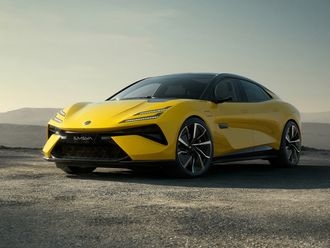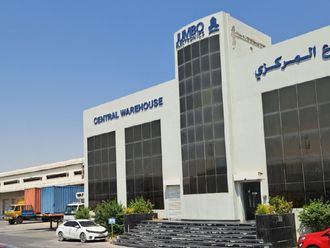Beijing: Architect Frank Lloyd Wright predicted in the 1950s that the shape of cities would be decided by the winner of a race between the car and the elevator. "Anyone who bets on the elevator is crazy," he said.
China may prove him wrong. Some 350 million Chinese — more than today's entire US population — will move to China's cities in the next 15 years, according to consultant McKinsey & Co, and government measures to limit urban sprawl and protect farmland mean developers have to build up rather than out. McKinsey estimates as many as 50,000 skyscrapers will be built in China during that time, the equivalent of 10 Manhattans.
Big guys
The building boom has manufacturers racing to grab a piece of an $11.7 billion (Dh43 billion)-a-year Chinese elevator market that researcher Freedonia Group Inc says will double within eight years. While Otis Elevator Co leads with a 23 per cent share, Hitachi Ltd and Hyundai Elevator Co are looking to make names for themselves by breaking elevator speed records, Bloomberg BusinessWeek reports in its latest issue.
"They want to get into the big boys' playground," said James Fortune, an elevator consultant who has advised architects on some of the world's tallest buildings, including the current record holder, Dubai's Burj Khalifa. "You don't hear the big guys bragging about the world's fastest elevators."
Hitachi, the Tokyo-based industrial group that makes everything from televisions to nuclear power plants, last month finished building a $66-million, 50-storey testing tower. The company will use it to develop elevators that can take the speed title from Toshiba Corp. Two days after the tower opened, Hyundai vowed it would break the record by midyear.
Hitachi and its South-Korean rival are racing to be first with elevators that can climb at 64km/h, roughly the vertical speed of a Boeing 777. The one-upmanship extends even to the testing towers, where the two companies are duelling over who has the world's tallest. Hitachi won by tacking on a 33-foot lightning rod. Otis, which supplied the 57 lifts for the Burj Khalifa, is the world's oldest and biggest elevator maker. Its share of the world market slipped to 20 per cent in 2008 from 26 per cent four years earlier, according to Freedonia. The unit of United Technologies, had sales of $11.7 billion last year, 50 per cent more than its closest rival, Switzerland's Schindler Holding.
Fifth factory
Otis is scrambling to stay ahead. The company will soon start construction on a fifth Chinese factory. The plant in the inland city of Chongqing is meant to capitalise on a government push to help less-developed areas catch up with coastal cities like Shanghai and Guangzhou.
The government's "go-west policy" is one reason about half of the 450,000 elevators installed this year worldwide will go up in Chinese buildings, said Rick Pulling, Otis' head of high-rise operations.
Chinese manufacturers are also ramping up. Shenyang Brilliant Elevator Co, which has become one of the country's biggest domestic lift makers, is moving in July to a 222-acre elevator factory in Shenyang.










